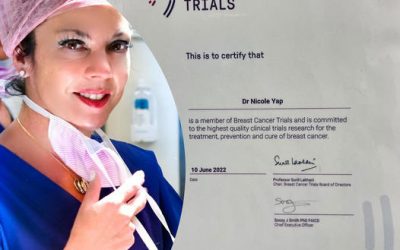Postmenopausal women often complain of painful intercourse or a lack of desire caused by decreased oestrogen levels, which affect vaginal elasticity and lubrication.
Survivors of breast cancer typically experience worse symptoms as a result of cancer treatments, and concerns exist regarding hormone therapies. A new study suggests that fractional CO2 laser therapy may help.
Study results are published online in Menopause, the journal of The North American Menopause Society (NAMS).
The menopause transition can subject women to genitourinary changes from a lack of oestrogen and subsequent alterations in vaginal elasticity, moisture, tissue integrity, and pH levels.
These changes can lead to troublesome vaginal and urinary symptoms that are collectively referred to as the genitourinary syndrome of menopause (GSM).
Although the condition is underdiagnosed, it can affect a woman’s well-being and sexual function.
Survivors of breast cancer are even more likely to experience GSM because of the effects of chemotherapy and/or endocrine therapy used to treat the cancer.
An ongoing problem is that many healthcare providers do not address GSM as part of survivorship care for these women.
Complicating matters is that treatment options are more limited for women with breast cancer because there are concerns about the use of even low-dose vaginal hormone therapies.
Fractional CO2 laser therapy is a nonhormone treatment approach for GSM that remodels vulvar and vaginal tissues. Early results indicate that the procedure is safe and effective.
In this newest study, CO2 laser therapy appears to have reduced sexual function problems at the 4-week follow-up visit.
Specifically, improvements were noted in sexual function in the areas of desire, arousal, lubrication, orgasm, satisfaction, and pain.
At the 4-week follow-up visit, additional improvements occurred with regard to a woman’s interest in sex and her level of sexual activity.
Although sexual function scores were lower at 1 year than at 4 weeks and indicated that women continued to experience sexual problems, they remained significantly improved compared with baseline.
Follow-up will be conducted again in 2 years to better identify the long-term effectiveness of laser therapy.
Although this new study was small, it provides valuable insights for healthcare providers treating postmenopausal women, especially postmenopausal women who are survivors of breast cancer.
Additional, larger-scale studies will be needed to fully explore the long-term potential of fractional CO2 laser therapy for the treatment of GSM and associated sexual problems.
Study results appear in the article “Patient-reported sexual function of breast cancer survivors with genitourinary syndrome of menopause after fractional CO2 laser therapy.”
“This study highlights the issue of sexual dysfunction affecting most survivors of breast cancer and the potential role for CO2 laser therapy in the treatment of GSM and related sexual problems. Additional study is needed to better understand the long-term safety and efficacy of this therapy,” says Dr. Stephanie Faubion, NAMS medical director and one of the authors of the study.
‘Two of my friends got breast cancer in their thirties. Here’s why young women are more at risk according to Breast Cancer Trials’
Reading this recent article in @bodyandsoul_au about women...
Cancer risks cascade through generations for some families. But there are high hopes for precision medicine
Michelle Brady remembers how much her daughter Addie loved...
Breast Cancer Trials
I am very proud to be a member of Breast Cancer Trials who...



